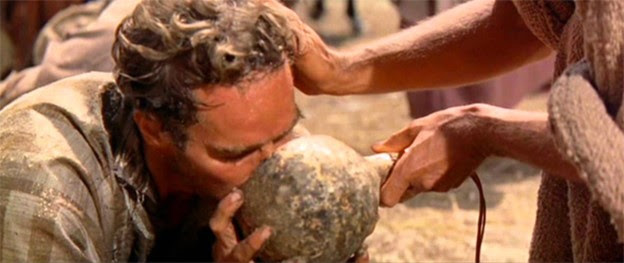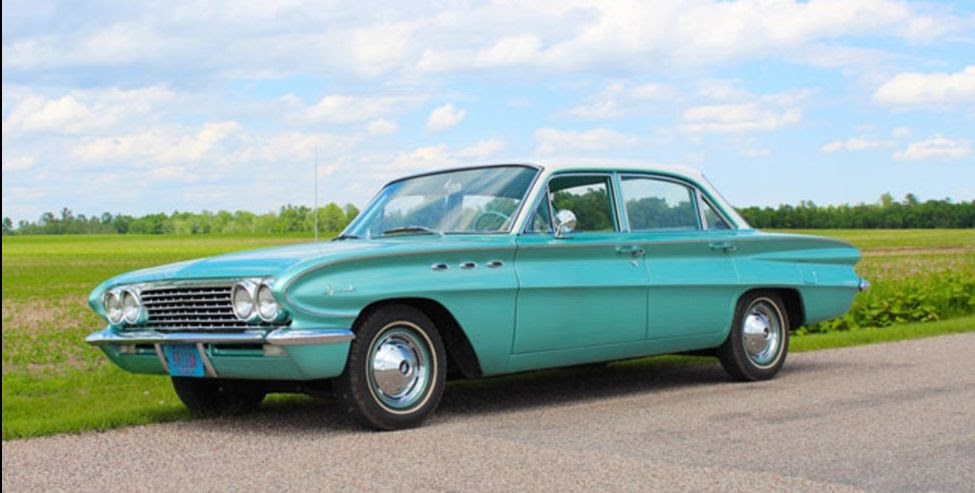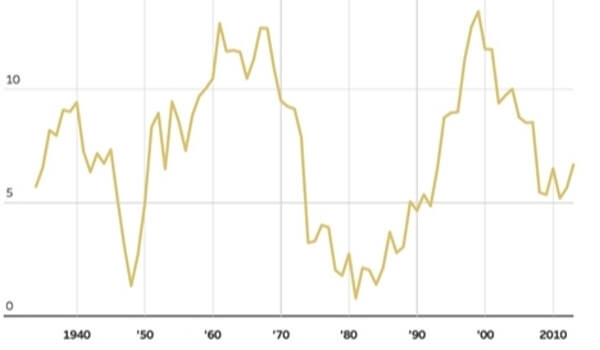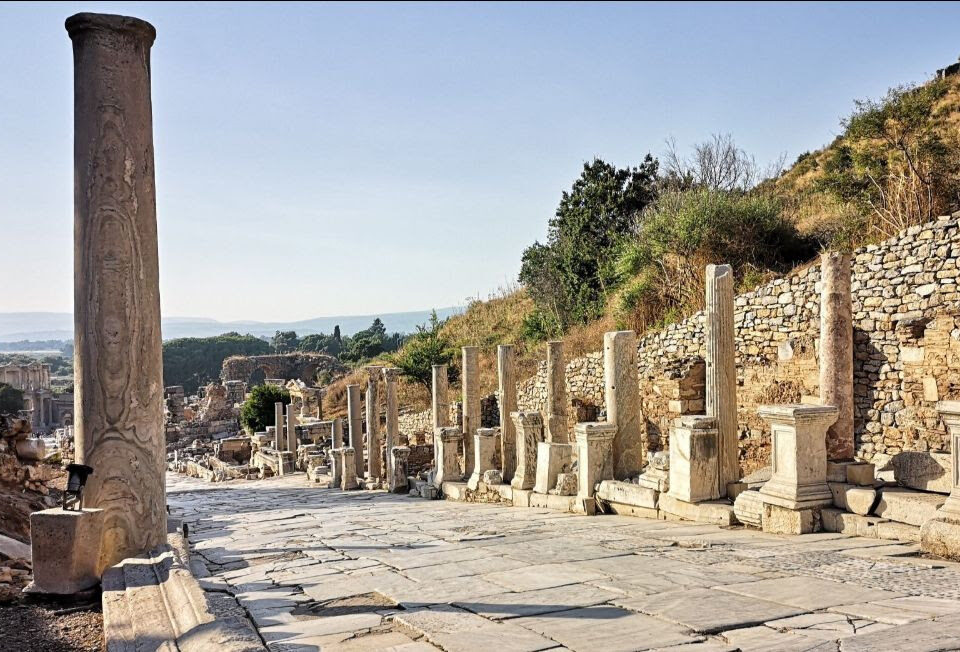The King will reply, “Truly I tell you, whatever you did for one of the least of these brothers and sisters of mine, you did for me.”
Matthew 25:40
I should have known better than to borrow a car from Dad.
Don’t get me wrong. Dad meant well, but as a child of the Great Depression, he also liked to drive cars well beyond their usefulness—and reliability.
So it was that in the summer of 1972, at the age of twenty, I found myself driving an old Buick Special from Tampa to Orlando to visit my older brother (who had recently gotten married). The tires on the car were balding, and the engine thundered like a NASCAR stock car, but not to worry. Dad had made sure I had a full tank of gas and I was on my way.
Sure enough, I got a flat tire somewhere along the I-4 corridor, nowhere near an exit or repair shop. I managed to pull over onto the shoulder of the highway and got out of the car. I found a spare tire in the trunk but couldn’t find a jack. What am I going to do, I asked myself?
Just then, a car pulled over in front of me and a man wearing sunglasses got out. He looked to be in his 40s, and in contrast to me, his hair was short, his button-down white shirt was tucked neatly in his trousers, and he had on a pair of dress shoes. With laces. As he walked toward me, I could hear the gravel crunching under the soles of his shoes. Plainclothesman, I said to myself, instinctively feeling in one pocket for my driver’s license and in my other pocket for the joint I had rolled up earlier that day.
“Having a problem?” the mystery man asked me.
“Flat tire,” I said noncommittally. “No jack.”
The man nodded. “I’ll be right back.”
He walked to his car, retrieved a jack, and returned to my car to change the tire. He made a quick job of it and got to his feet.
“Thank you, sir,” I said. “I don’t really know what to say.”
“A thank you is fine,” he said, smiling. “Are you going to be all right?”
“Yessir, I think so.”
And then, like that, he was gone.
I often share this story when I give my testimony of coming to faith in Christ. That Good Samaritan will never know—this side of heaven—how his kindness touched my heart. I didn’t become a Christian in the next breath; indeed, I was far removed from Christ for many years thereafter. But I never forgot that man. Why had he stopped to help me—a long-hair in flip-flops standing next to a junky old car on the highway? And the manner in which he helped me. No fuss. No lectures. Just old-fashioned goodwill.

I think of the scene in the movie Ben-Hur when Jesus defies the centurion to give Judah Ben-Hur a cup of cold water on his grueling desert march to the Roman slave galleys. Several times during the course of the film, Judah Ben-Hur will return to this pivotal moment in his life as he contemplates God’s mysterious providence. “Once before, a man helped me,” he says. “I never knew why.”
For many years, I never knew why anyone bothered with me either.
In 2006, I found myself involved in another “mechanical failure” of sorts. This time, I was living in Mexico City and had three grown children with me. We had been on our way to a church service in Toluca when our used Volkswagen van broke down on the outskirts of town. (As an aside, I had not borrowed this vehicle from Dad. True, I was trying to follow in his footsteps by making good use of a real lemon, but this debacle was entirely on me.)
There we were, stranded in the dark, miles from our destination. I managed to call Pastor Dávila and ask for help. He sent someone to pick us up and bring us to church.
“You don’t remember me, do you, Hermano Cristóbal?” the driver of the car asked me.
He had me there. I did not remember him. “It’s me, Brother Héctor. I play the trumpet. Do you remember now?” A vague association tickled my brain matter. He continued.
“When you were living in Toluca ten years ago,” he continued, “I was new to the church and had come across hard times. I had to pawn my trumpet and you gave me the money to get it out of hock. You helped me get back on my feet, Hermano Cristóbal. I’ve never forgotten that. You were a godsend to me.”
Interesting choice of words. “A godsend.” I confess I wish I could be a godsend more often in this world. How about you?
Opportunities abound for all of us. Why don’t we see and act upon them more frequently? I think one reason is that we’re too often looking in the wrong places. “Who did you come out to see?” Jesus asked the crowd, referring to John the Baptist. “A man dressed in fine clothes? No, those who wear fine clothes are in kings’ palaces. What then did you go out to see?” (Matthew 11:8, 9a).
I ask of us the same question: Who have we come out to see? Who are we trying to impress with our good deeds? The rich? The famous? The ones who can pay us back?
When I was little and living in Tampa, a lady named María Escobar came to live in our house. She was one of many Cuban exiles who fled to the United States after Fidel Castro rose to power. She was unmarried and had no children. She became a “domestic” in our home, serving as my mother’s “brazo derecho” and keeping me and my younger brother in line. My Spanish improved rapidly as a result of being under the same roof with María. She liked to tell me what to do and I liked to argue and be contrary. I remember after one such head-butting session I looked up the word for “buzzard” in my Spanish-English dictionary and found just the right word to call her: “Buitre!”
Thankfully, María could extend some grace and patience, too. She noticed I was eager to improve my Spanish and she taught me numerous dichos, or sayings, that were further illustrated by stories from her native Cuba. I still remember those dichos today, and one in particular: Haz bien y no mires a quién, which translated means: Do good and don’t look to whom.
It has been a good rule of thumb for me ever since. Invariably, when we show kindness to the hungry, the prisoner, the naked, and the hurting we are showing kindness to the King. How so? Because this King, the God of the universe, identifies closest with the least among us, especially those who are the least unlikely to pay us back in this lifetime. And when we honor those who are least, even those who are despised, we honor him.
For “God chose the lowly things of this world and the despised things—and the things that are not—to nullify the things that are, so that no one may boast before him” (1 Corinthians 1:28, 29).
All hail the King!
Love and blessings,


On May 25 in Seminole, Florida I participated in a panel discussion on mental health followed by a showing of our film Let Me Have My Son. When the movie ended, it seemed as though everyone in the theatre wanted to shake my hand or say something personal to me. Some had tears in their eyes. Without exaggeration, I felt as though something sacred were taking place around me. I realized that—through the film—I had made a profound connection with most of the people in the audience and they didn’t want to leave the room. They wanted to acknowledge in a tangible way that something inside of them had changed.
Something happened inside me, too. My ego receded. There was no thought for myself. No agenda. Just gratitude that I had been used to bring some measure of comfort—a cup of cold water—into the lives of others.
¡Haz bien y no mires a quién!




